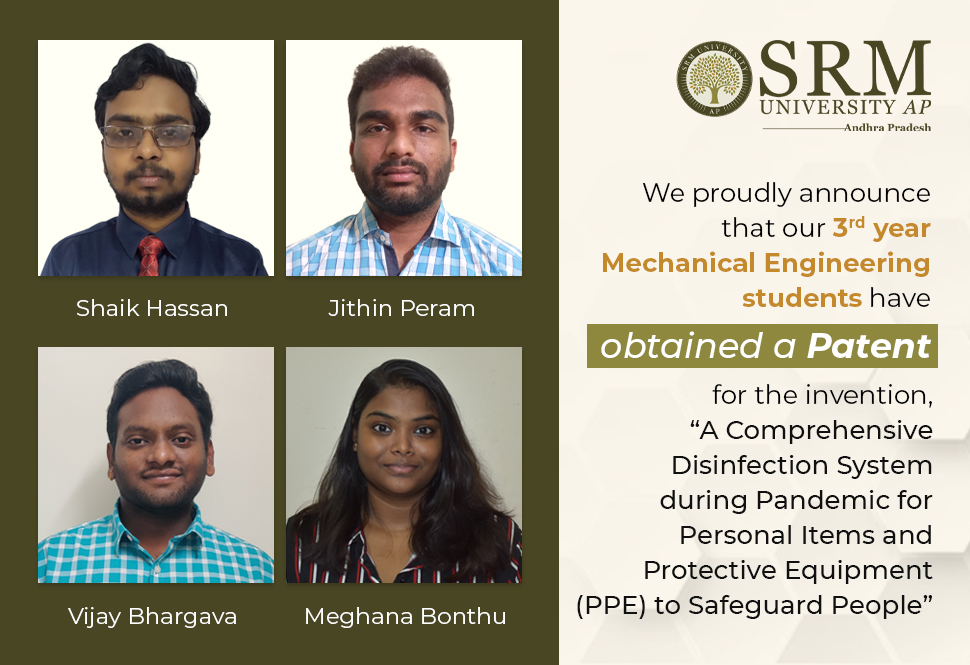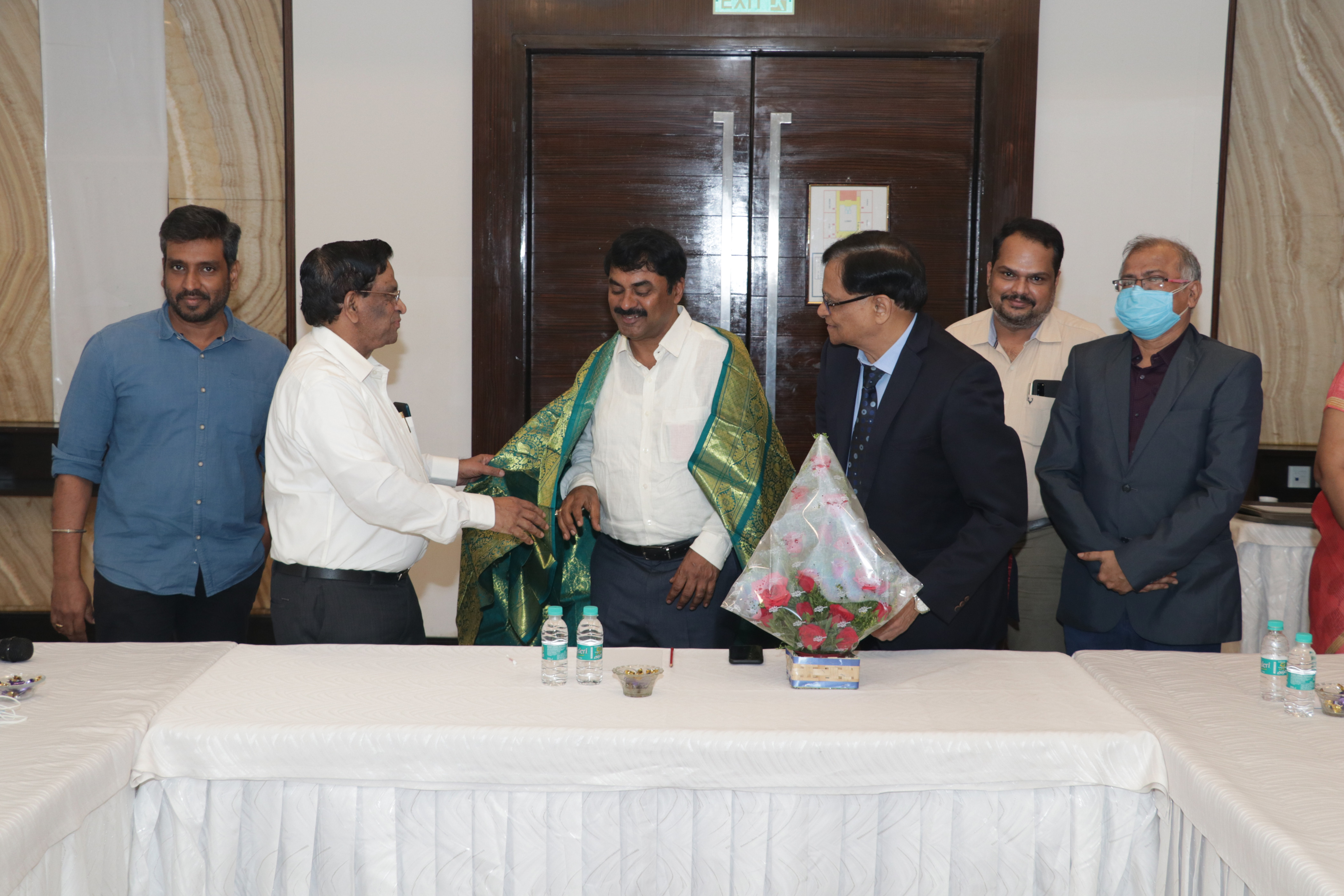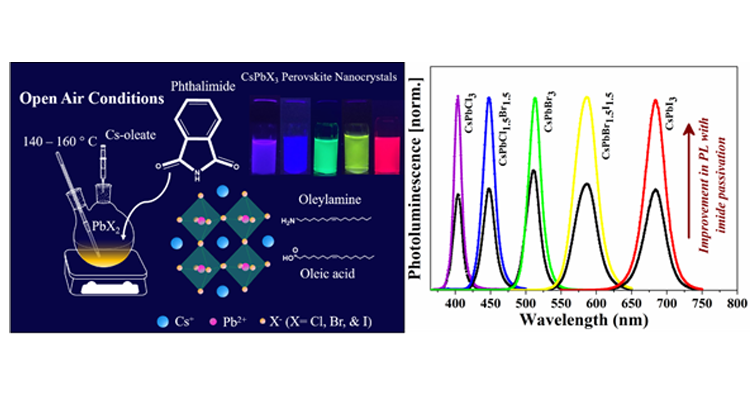Undergraduates bring off one more patent to SRM University-AP
 Young researchers from Mechanical Engineering- S.K Hassan, M.Vijaya Bhargava, Jithin Peram, and Meghana Bonthu- have added one more laurel to SRM University-AP by inventing something novel! Under the supervision of faculty from the Department of Mechanical Engineering, the quartet have published a patent A Comprehensive Disinfection System during Pandemic for Personal Items and Protective Equipment(PPE) to Safeguard People.
Young researchers from Mechanical Engineering- S.K Hassan, M.Vijaya Bhargava, Jithin Peram, and Meghana Bonthu- have added one more laurel to SRM University-AP by inventing something novel! Under the supervision of faculty from the Department of Mechanical Engineering, the quartet have published a patent A Comprehensive Disinfection System during Pandemic for Personal Items and Protective Equipment(PPE) to Safeguard People.
The current Covid-19 pandemic has led to an enormous demand for gadgets/objects for personal protection. To prevent the spread of the virus which proliferates also through surface transmission, it is important to disinfect objects of common use. One of the ways suggested is to use a UV-C disinfecting box that is efficient and effective in deactivating the COVID-19 virus. The novelty of the product prototype is the use of a UVC transparent material (fused silica quartz glass tubes). This not only physically supports the objects to be disinfected but also improves the effectiveness of disinfection. The aluminium foil which the students have used, a UV reflecting material, was used as the inner lining of the box for effective utilization of the UVC light emitted by the UVC lamps. Care has been taken to prevent leakage of UVC radiation out of the system. COVID-19 virus can be inactivated in 5 minutes by UVC irradiation in this disinfection box.
This novel product can help in efficiently sanitizing normal household items such as mobile phones, keys, purses, grocery and also PPE kits (masks, gloves, visors etc.). This product is not only affordable but also makes disinfection faster. Moreover, the operational process is simple – open the door, place the objects, turn it on and then retrieve them sanitised within minutes.
“We are looking forward to taking up this UV Box to the next stage of implementation with a more compact and more efficient mechanism”, says the proud team behind the invention. “We are ready to undertake new projects and with the help and support from Dr Venkat Nori and other faculty members”, they added.
Link to patent document: https://ipindia.gov.in/writereaddata/Portal/IPOJournal/1_4971_1/Part-1.pdf
- Published in Departmental News, Mechanical Engineering NEWS, News, Students Achievements
Ganji Harikrishna earns a dream offer of 17 LPA at Zuora
 The maiden graduates of SRM University-AP have secured 100 per cent placements in the campus recruitment drive where 500+ reputed companies from India and abroad visited our university. More than 70 per cent of the students successfully bagged the dream and super dream offers. Ganji Harikrishna, a CSE graduate, received a dream offer with a salary package of 17 lakhs per annum from ZUORA, a leading software MNC. He joined as a full-time Senior Development Engineer (SDE) and would work in their Chennai office.
The maiden graduates of SRM University-AP have secured 100 per cent placements in the campus recruitment drive where 500+ reputed companies from India and abroad visited our university. More than 70 per cent of the students successfully bagged the dream and super dream offers. Ganji Harikrishna, a CSE graduate, received a dream offer with a salary package of 17 lakhs per annum from ZUORA, a leading software MNC. He joined as a full-time Senior Development Engineer (SDE) and would work in their Chennai office.
Student Testimonial
SRM AP is a great place to learn new things and what makes me excited about it is the excellent group of faculty and state-of-art infrastructure. Faculty at SRMAP are from reputed academies spread in and outside the country, and they are highly interactive with students. The training and placement cell organises personality development programmes, group discussions, mock interviews with industry experts, and personality development training sessions for the candidates. The all-round development training made me confident to face the challenges associated with interviews. Besides the aptitude and soft skills training, SRM AP provides CCC training for those who are very good at Computer Science Fundamentals and Coding. The curriculum followed by CCC was great and they were interactive with the students in clarifying their doubts in coding and as well as further rounds of interviews.
There was great motivation from the Corporate Relations and Career Services Department and faculty members. They trained me with the tips to clear the interview. I appreciate the efforts made by the CRCS department in bringing such top MNC’s like AMAZON, PAYPAL, AB InBev etc. Faculty members worked very hard for the success of each student, especially our HOD, Dr Raghunathan has been of firm support to all things associated with the CSE Department.
- Published in CR&CS, CR&CS NEWS, CSE NEWS, Departmental News, News, Students Achievements
DRDO Chairman Dr Satheesh Reddy meets the leaders of SRM University-AP
 Dr G. Satheesh Reddy, Chairman, DRDO had an interactive meeting with the leaders of SRM University-AP on July 25, 2021. Prof V.S. Rao, Vice-Chancellor and Prof D. Narayana Rao, Pro-Vice-Chancellor of SRM University-AP felicitated Dr Satheesh Reddy for his glorious technological contributions to India.
Dr G. Satheesh Reddy, Chairman, DRDO had an interactive meeting with the leaders of SRM University-AP on July 25, 2021. Prof V.S. Rao, Vice-Chancellor and Prof D. Narayana Rao, Pro-Vice-Chancellor of SRM University-AP felicitated Dr Satheesh Reddy for his glorious technological contributions to India.
Prof Ranjit Thapa from the Department of Physics made a presentation on the Computational Materials Genome project to Dr Satheesh Reddy. He emphasized the importance and significance of the Computational Materials Genome project and how it is useful to accelerate the design, development, discovery of new functional materials many times and at a minimal cost compared to the existing traditional methods. During his presentation, he explained the development of catalysts using QM/ML approaches, the development of explosophores, and computational fluid dynamics on external aerodynamics on Earth and Mars. Dr Satheesh Reddy was impressed with the presentation and suggested contacting DRDO-Young Scientist Laboratory related to Smart Materials in Hyderabad for experimental collaborations. He advised Dr Sathya Pramod to discuss computational models with the Scientists who are working on hypersonic wind tunnels deployed in DRDL, Hyderabad.
Prof Vinod Kumar presented a proposal on foams based on Aluminium and Magnesium. He explained the processing, structure, morphology, and applications of these metal forms. Dr Satheesh Reddy advised looking into titanium-based metal forms also. Later, Dr Jasvinder Singh presented his work on cardiovascular stents fabricated by solvent cast 3D printing. Dr Satheesh Reddy has shown keen interest and he has asked for a copy of the presentation and other details for further study.
Dr Satheesh Reddy assured collaboration with SRM University-AP on a few projects that are relevant to the needs of DRDO. He elaborated on the following initiatives of DRDO.
1. DRDO will fund the incubation centres which work on defence-related problems by freshly graduated BTech students with the financial assistance of up to Rs 1 crore. Further, if the fresh graduates come forward as industrial partners, DRDO could provide financial assistance of up to 10 Crores INR.
2. DRDO has also started joint PhD programmes with universities/institutions in India. DRDO scientists will act as co-guides and registered PhD students will get an opportunity to work in DRDO labs during the tenure.
3. DRDO has started MTech programmes in Defence Technologies jointly with the universities. In this programme, students will complete the course work in the university and in the second year, students can do their project work in the DRDO labs.
4. DRDO is also interested in supporting long-term projects with the Universities under the Directed Research programme which could be supported by DRDO for a long-term of two or three decades.
- Published in News
Dr Nimai Mishra’s research group studies new surface capping ligands
 Dr Nimai Mishra, Assistant Professor, Department of Chemistry, SRM University-AP, Andhra Pradesh, along with his research group pursuing PhD under him-Ms V.G.Vasavi Dutt and Mr Syed Akhil- have published a research article titled “Enhancement of Photoluminescence and Stability of CsPbX3 (X= Cl, Br, and I) Perovskite Nanocrystals with Phthalimide Passivation” in the Journal “Nanoscale” (The Royal Society of Chemistry, Impact Factor-7.8).
Dr Nimai Mishra, Assistant Professor, Department of Chemistry, SRM University-AP, Andhra Pradesh, along with his research group pursuing PhD under him-Ms V.G.Vasavi Dutt and Mr Syed Akhil- have published a research article titled “Enhancement of Photoluminescence and Stability of CsPbX3 (X= Cl, Br, and I) Perovskite Nanocrystals with Phthalimide Passivation” in the Journal “Nanoscale” (The Royal Society of Chemistry, Impact Factor-7.8).
Caesium lead halide perovskite nanocrystals (CsPbX3 NCs) have been the flourishing area of research in the field of photovoltaic and optoelectronic applications because of their excellent optical and electronic properties. However, they suffer from low stability and deterioration of photoluminescence (PL) properties post-synthesis. One of the ways to minimize the surface defects in the surface treatment with suitable ligands is to achieve the NCs with superior PL properties for light-emitting applications.
In this article, Dr Mishra’s research group demonstrates that incorporating an additional ligand can further enhance the optical properties and stability of NCs. Here, we introduced phthalimide as a new surface passivation ligand into the oleic acid/oleylamine system in situ to get near-unity photoluminescence quantum yield (PLQY) of CsPbBr3 and CsPbI3 perovskite NCs. We observed, phthalimide passivation dramatically improves the stability of CsPbCl3, CsPbBr3, and CsPbI3 NCs under ambient light and UV light. The PL intensity is recorded for one year which showed a dramatic improvement for CsPbBr3 NCs. Nearly 11% of PL can be retained even after one year for phthalimide passivated samples, on the other hand, the PL of as-synthesized NCs completely diminishes in four months. CsPbCl3 NCs exhibit 3 times higher PL with phthalimide and retain 12% PL intensity even after two months while PL of as-synthesized NCs completely diminishes by then. Under continuous UV light illumination, the PL intensity of phthalimide passivated NCs is well preserved while the as-synthesized NCs exhibit negligible PL emission in 2 days. About 40% and 25% of initial PL is preserved for CsPbBr3 and CsPbCl3 NCs in the presence of phthalimide. CsPbI3 NCs with phthalimide exhibit PL even after 2 days while the PL is rapidly declined for as-synthesized NCs in the first 10 hours. The presence of phthalimide in CsPbI3 NCs could maintain stability even after a week while the as-synthesized NCs under transition to non-luminescent phase within 4 days.
Furthermore, blue, green, yellow, and red-emitting diodes by using CsPbCl1.5Br1.5, CsPbBr3, CsPbBr1.5I1.5, CsPbI3 NCs respectively are fabricated by drop-casting NCs onto blue LED lights which show the great potential of the use of these phthalimide passivated NCs in the field of display and light technologies.
Read the full paper here: https://pubs.rsc.org/en/content/articlelanding/2021/nr/d1nr03916d
- Published in Chemistry-news, Departmental News, News, Research News

